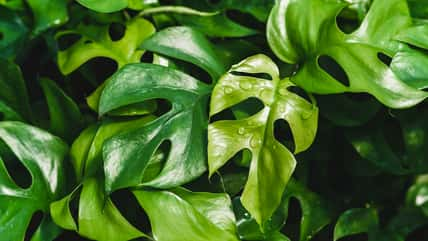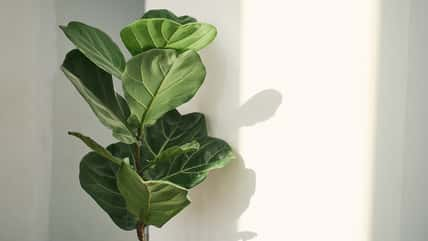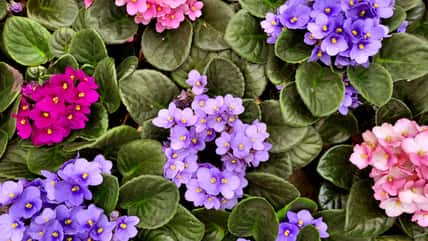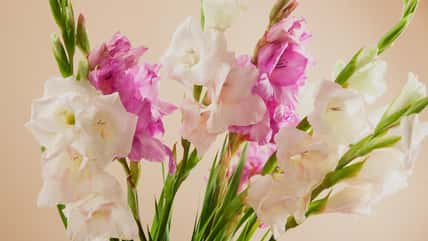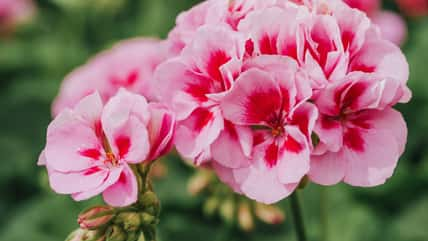Bring Exotic Citrus Into Your Very Own Garden By Growing A Meyer Lemon Tree, A Sweet Cross Between Regular Lemons And Mandarin Oranges

Imagine sitting in your backyard this summer, sipping on a refreshing lemonade, but with a twist. Your beverage is sweeter, more aromatic, and has this unique floral note that you can’t quite put your finger on.
That’s the Meyer lemon magic because these citrus jewels are not like your ordinary grocery store lemons.
Rather, Meyer lemons are a favorite among garden enthusiasts and culinary connoisseurs alike, bringing a slice of exotic flavor right into your own home garden or balcony.
What Exactly Is A Meyer Lemon?
Meyer lemons are a cross between a regular lemon and a mandarin orange, which explains their distinctive sweet flavor and slight orange tint.
This fruit is also a culinary delight that’s softer and juicier than its conventional counterpart, with a thinner peel.
Native Roots & Differences
Originating from China, the Meyer lemon first made its way to the United States in the early 20th century.
Unlike the common lemon, Meyers are more compact and less acidic, boasting a rounder shape and a deep yellow to orange hue when ripe.
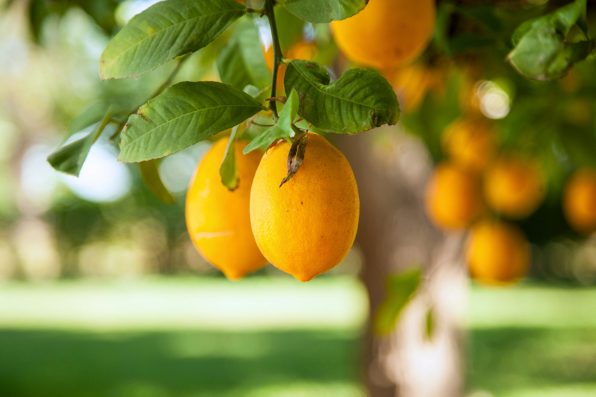
Rebecca – stock.adobe.com – illustrative purposes only
These trees are also particularly more frost-tolerant and can thrive in a pot, making them an excellent choice for gardeners in cooler climates who dream of growing citrus.
When To Plant The Seed (Or Tree)
The best time to plant a Meyer lemon tree is in the spring, after the last frost occurs, to give it a full growing season to establish itself.
If you’re in a cooler region, you can also consider a container garden. This will allow mobility for your citrus tree to soak up the sun outdoors during warmer months and move indoors when winter rears its head.
Care Essentials
Now, when it comes to caring for Meyer lemon trees, it’s important to know that they revel in the sunlight– requiring at least 6 to 8 hours of direct sun exposure every day to thrive.
So, for those opting to grow their lemon tree indoors, placing it by a sunny south-facing window will ensure it receives the amount of light it craves.
The watering regimen for these citrus trees should aim for a balance as well, maintaining soil that is consistently moist but never waterlogged.
Overwatering is a pitfall to be avoided, too, so ensuring that your pot has good drainage and allowing the top inch of soil to dry out between waterings is key.
Additionally, temperature and humidity play a significant role in the well-being of a Meyer lemon tree. They prefer a warmer climate, with ideal temperatures ranging between 50°F and 80°F.
For indoor trees, especially during the dry winter months, it may be beneficial to use a humidifier or place a pebble tray filled with water beneath the plant to increase humidity levels around it.
Lastly, when it comes to soil, Meyer lemon trees are best suited to well-draining, slightly acidic conditions. A potting mix specially formulated for citrus or palm trees can be an excellent choice.
And to support healthy growth and fruitful harvests, feeding your tree with a balanced, slow-release fertilizer designed for citrus plants will provide the essential nutrients it needs.
Tackling Disease & Pest Problems
Meyer lemon trees can face their share of challenges as well, from pests like spider mites and scale to diseases such as root rot and leaf drop.
Regular inspection and maintaining proper care will keep most issues at bay. You can also use organic pest control methods and ensure adequate air circulation to prevent fungal diseases.
The Fun Part: Harvest Time
It would be amazing if we could just fast-forward to harvest time. But you have to remember that patience is key with Meyer lemons.
Your tree may actually take a few years to start producing fruit. However, when it does, the wait will be well worth it.
You can harvest the lemons when they are fully yellow, slightly soft to the touch, and have a fragrant aroma. Just remember not to rush this process because lemons will not continue to ripen once picked.
Sign up for Chip Chick’s newsletter and get stories like this delivered to your inbox.
More About:Gardening
